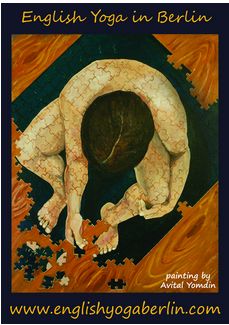***Due to the extended corona lockdown regulations this retreat has been cancelled.***
Pinelopi is organising a three day long weekend yoga retreat near Berlin on:
Conscious Intention
We warmly invite you to intentionally spend three days together in presence and mindfulness!
Why am I reading this book? … meeting with this friend?… meditating?… going to work? How often do we stop to become aware of the intention behind the things we are doing, and how often do we simply do them because they are automatic, a habit, the “right thing to do” and we no longer question them? Living with intention firstly transforms the way one lives and one loves, and, as a result, the way one interacts with the world. Since intention is one of the three pillars of mindfulness, setting intentions, therefore, becomes essential to living consciously. In this yoga retreat near Berlin we will explore the power of intention and ways to bring it into our yoga practice.

What is the intention behind my wish?
When:
Thursday May 13th, 2020; 15.00 (Berlin public holiday)
to Sunday May 16th, 2020; 14.00
Where:
Rosenwaldhof – This Yoga retreat on “Conscious Intention” will take place in a beautiful place in Brandenburg, 1.5 hours South-east of Berlin, on the river Havel, surrounded by nature.
What is included:
- Presentations, discussions and exercises about “Conscious Intention”
- Guided Meditations
- Tratak (candle gazing)
- Five yoga sessions
- Nature Walks
- Star gazing and bonfire
- Gratitude practices
- Mantra chanting
- Delicious vegetarian/ vegan meals, tea, coffee and fruit
Prices:
Pinelopi´s instruction on all of the above
- 190 Euro
Plus Rosenwaldhof lodging and food according to your preference:
- Shared double room with shared bathroom: 189 Euro
- Shared double room with private bathroom: 204 Euro
- Single room with shared bathroom: 204 Euro
- Single room with private bathroom: 234 Euro
Please note that payments to Pinelopi and Rosenwaldhof will happen separately.
Who:
- Up to 15 yoga students
Early registration discount: 15 € discount if you register for the yoga retreat before February 28th, 2021. To reserve your space, please send an email and deposit 50 Euro by bank transfer or paypal.
*The deposit is fully refundable if the Corona lock down continues. It is, also, fully refundable if a cancellation occurs before April 1st, 2021, and 50% refundable if cancellation occurs before April 25th, 2021. After which no refund is possible. The deposit is fully refundable if the Corona lock down continues.
Since space is limited, register early before the spots fill up!
For more details, please write to:
pinelopi (at) englishyogaberlin (dot) com
About the author:
Read more about Pinelopi here.






